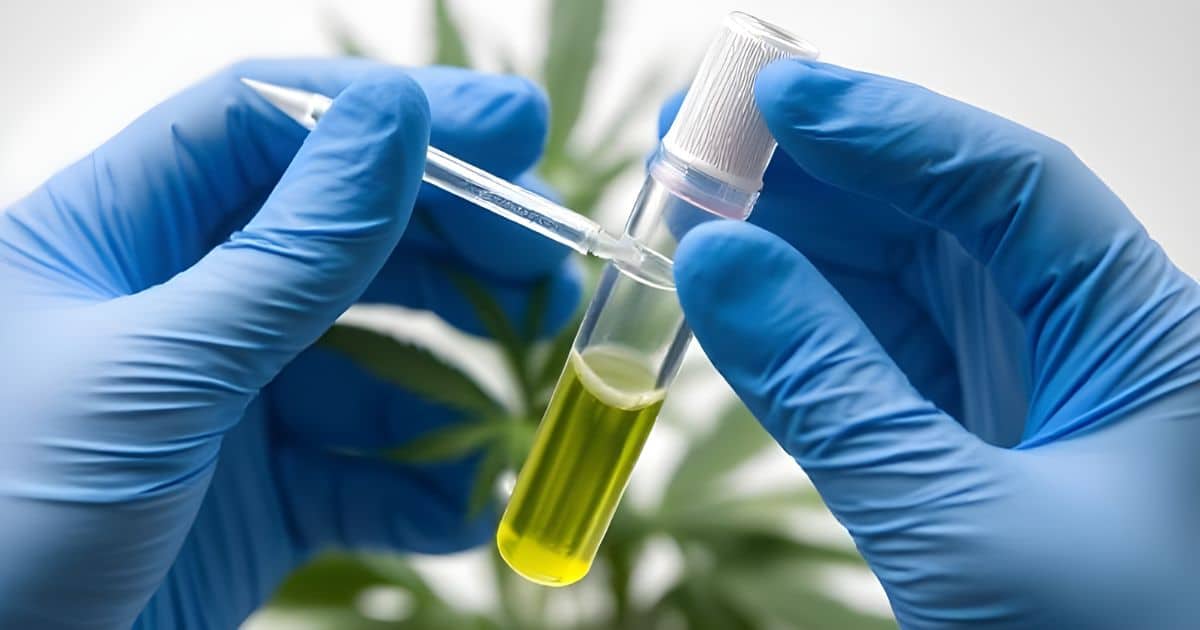Introduction
CBN, or cannabinol, has become a go-to option for Canadians seeking better sleep without the high associated with THC. But with more workplaces and organizations conducting drug tests, it’s natural to wonder: can CBN show up on a drug test? And if so, what are the chances of testing positive even if you’re not using THC? In this article, we’ll break down the science, look at real-world experiences, and help you understand the risks involved if you’re using CBN in 2025.
What Is CBN?
CBN is a naturally occurring cannabinoid that forms as THC ages and breaks down. Unlike THC, it doesn’t produce a strong psychoactive effect, which is why it’s often marketed for sleep and relaxation. CBN is typically extracted from aged cannabis or hemp and infused into gummies, tinctures, and capsules.
While CBN itself is not intoxicating, its origins in THC can raise concerns during drug testing. In Canada, CBN is legal when derived from legal cannabis sources and sold by licensed retailers or producers. It’s increasingly found in sleep aids and therapeutic supplements across the country.
How Drug Tests Work in Canada
Drug testing in Canada is most common in safety-sensitive jobs, professional sports, and sometimes during legal proceedings. The most widely used drug tests include urine, saliva, blood, and hair follicle tests.
These tests typically look for THC metabolites, especially THC-COOH, which is stored in fat cells and can linger in your system for days or even weeks. Importantly, most tests do not specifically screen for CBN, but depending on the quality of the test and the presence of trace THC, you could still run into problems.
Can CBN Trigger a Positive Drug Test?
While CBN itself isn’t usually a target in drug screenings, it shares a close chemical structure with THC. Some studies and anecdotal evidence suggest that CBN may cause false positives on certain urine tests, especially those using less advanced immunoassay technology.
The risk increases if your CBN product contains trace amounts of THC. This can happen if you’re using a full-spectrum product, which legally contains up to 0.3 percent THC. Even this small amount could accumulate in your system with regular use and potentially trigger a positive result.
Another issue is product mislabeling. Some CBN products sold online or in stores may contain more THC than advertised, especially if they lack third-party testing. Always approach unknown or unverified brands with caution.
Full Spectrum vs Broad Spectrum vs Isolate Products
Not all CBN products are created equal. If you’re concerned about drug tests, it’s important to understand the type of product you’re using.
Full-spectrum CBN products include a range of cannabinoids, including THC. These offer the “entourage effect” but are also the riskiest when it comes to drug testing.
Broad-spectrum products contain multiple cannabinoids but are typically free of THC. These are a safer option for those who want benefits beyond CBN alone without the risk of THC exposure.
CBN isolate products are your safest bet. These are pure CBN extracts with no other cannabinoids present. If you’re subject to drug testing, isolate is the most reliable choice.
Make sure any product you use comes with a Certificate of Analysis (COA) from a third-party lab that confirms THC content is non-detectable or zero.
Real-World Experiences and Case Studies
Some users have reported failing drug tests after using CBN products, especially those that were full-spectrum or mislabeled. These cases are relatively rare but highlight the importance of knowing exactly what you’re taking.
There’s also variability in how different tests respond. Less sophisticated tests may struggle to distinguish between THC and other cannabinoids like CBN, increasing the risk of a false positive.
In Canada, employers are generally not testing for cannabinoids unless safety is a concern, but it still pays to be cautious.
How to Minimize Your Risk
If you’re using CBN and want to avoid any issues with drug testing, there are a few steps you can take.
Choose isolate-based products that are clearly labeled THC-free
Look for brands that provide up-to-date COAs from third-party labs
Avoid full-spectrum formulas unless you are absolutely sure they meet legal THC limits
Use your CBN product well before any anticipated drug test. While CBN may clear the body in a few days, any trace THC may stay longer
Keep documentation of the product you’re using, including batch numbers and lab results, in case you need to defend yourself
What to Do If You Fail a Drug Test
If you fail a drug test after using a CBN product, your first step should be to request a confirmation test. The gold standard is a GC-MS (Gas Chromatography-Mass Spectrometry) test, which is more accurate and can distinguish between different cannabinoids.
In many workplaces, especially in Canada, you may also have the right to explain any supplements or medications you are using. If your product was legally purchased and properly labeled, you may be able to contest the result.
If the stakes are high, such as in a legal or employment dispute, consult a lawyer familiar with cannabis law and workplace rights in Canada.
Summary
CBN offers a non-intoxicating option for better sleep, and for most people in Canada, it won’t cause any issues with drug testing. That said, there is a small but real risk—especially if you’re using full-spectrum products or low-quality supplements.
If you want peace of mind, stick with trusted brands that offer THC-free CBN isolate products and always check the lab results. Understanding your product and your testing environment is the best way to stay safe while enjoying the benefits of CBN.

